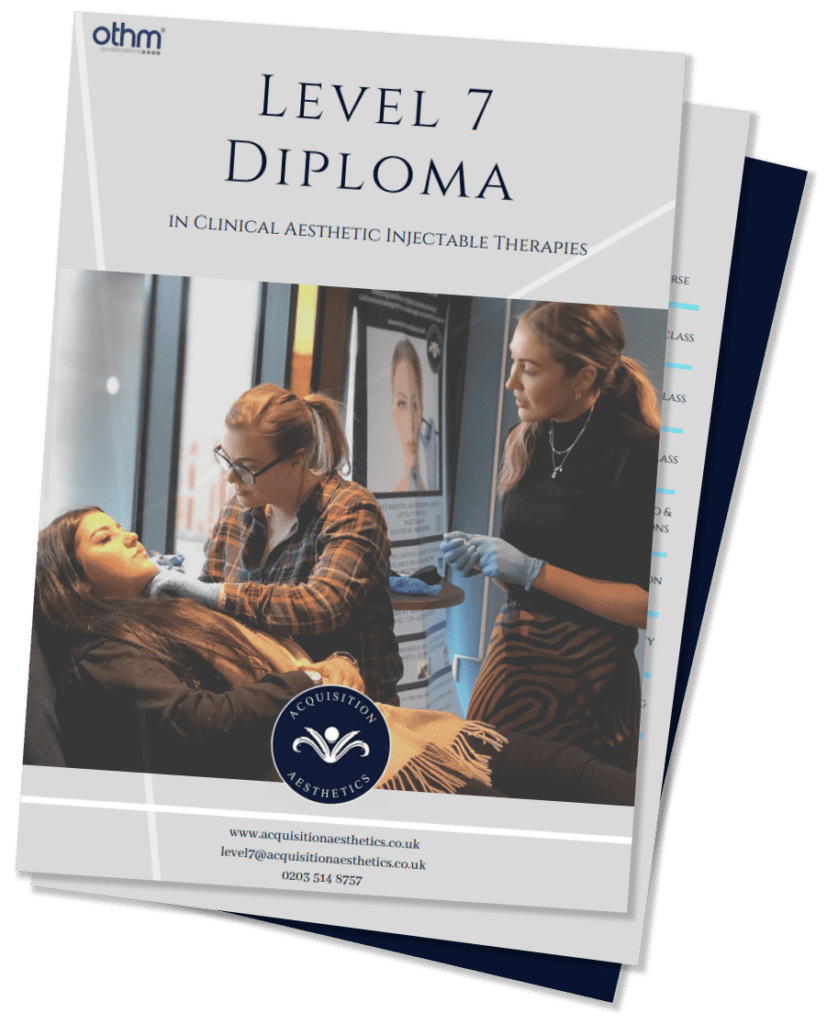If you’re an aesthetics practitioner working within a clinic in the UK, you’ll understand the vital importance of the initial patient consultation. Consisting of a number of core elements, your first point of contact with a new potential client is a valuable opportunity for both patient and client to obtain key information about their suitability for the chosen treatment.
One of the fundamental aspects of the aesthetics consultation is assessing patient mental health to determine their reasons for undergoing treatment and identify any potential red flags that would deter you from agreeing to provide the injectable procedure requested.
In this blog post, we’ll outline some of the major psychological factors to consider when screening your client for mental health issues. We’ll also touch on the significant duty of care that you, as the aesthetician, have in protecting patient mental health and maintaining strict standards and procedures within your aesthetics clinic.
Psychology in aesthetics
With the constant rise in demand for aesthetic treatments throughout the UK in the past decade, there has been an increasing focus within the community to better understand the psychological drivers for new patients. Social media and celebrity culture have both played a significant role in skyrocketing the interest in injectable procedures. Particularly for young women, the pressure to maintain a perfect appearance online to keep up with their friends and peers is one that drives many to make rash decisions about a cosmetic treatment that they don’t have a comprehensive understanding of. This is an extremely dangerous situation for impressionable young adults to find themselves in, especially for those with pre-existing health issues or psychological conditions.
Body dysmorphic disorder (BDD) is a particularly concerning anxiety disorder related to body image that affects many patients seeking treatments in aesthetic enhancement or cosmetic surgery. For those who suffer from BDD, they may have spent years or even decades worrying about certain aspects of their physical appearance and obsessing over flaws that other people might not even notice.
As a healthcare professional and aesthetic practitioner, you have an important duty of care to pick up on key signs of patient mental health issues when conducting the initial consultation. Knowing how to deal with vulnerable clients and when to refuse treatment is a vital skill that all aestheticians must master before launching a career in the industry. Your clinic should have a well-established procedure in place to assess your patient’s psychological reasons for undergoing treatment, with a strict policy for those who display signs of mental health issues. By participating in formal patient care training, you will gain a comprehensive understanding of the appropriate questions to ask and encourage your client to open up about their reasons for seeking treatment, as well as any body dysmorphia or mental health issues they have encountered throughout their life.
The consultation
The aesthetics consultation is an extremely important appointment that should be mandatory for every patient entering your clinic for the first time, and plays a major role in defining the patient-practitioner relationship. As a healthcare professional, you likely have extensive experience in patient care and dealing with sensitive topics and confidential issues. Aesthetics treatments are very personal procedures that individuals have often considered for years, so it’s crucial to play an emotionally supportive role and establish a high level of trust with your new patient. By asking open questions during the consultation and giving your client ample opportunity to answer your inquiries in full, you’ll be far more likely to gain a deep understanding of their aesthetic ideals and any concerns they may have about the process. Don’t forget to repeat each of their answers back to them to clarify each of their points and avoid any potential miscommunications between the two of you. Following this careful and deliberate method of examination will solidify you as a highly-skilled and professional aesthetician and set the ideal foundation for your ongoing patient-provider relationship with each new client.
Creating a treatment plan
Once you’ve successfully completed the initial screening consultation, verified patient mental health and established your client as a suitable candidate for aesthetic treatment, it’s time to create a tailored treatment plan to meet their needs and aesthetic goals. It’s important to work with your client to set realistic expectations for the results of the procedure, with advice to undergo follow-up treatments every few months where appropriate. To better understand the aesthetic ideal that your patient would like to achieve, it’s a good idea to request that they show you photos of a time when they were happy with their physical appearance, and how things have changed since then. By focusing on your patient’s existing features rather than a celebrity or influencer they would like to base their look on, you’ll be able to set far more realistic expectations and avoid any potential disappointment post-procedure. Oftentimes, your client’s desired result may not be achievable from one appointment alone, so coming up with a plan for the next treatments should be incorporated into your suggested proposal.
Training with Acquisition Aesthetics
At Acquisition Aesthetics, we proudly work with healthcare professionals including doctors, dentists and nurses, providing gold-standard training in aesthetic medicine and setting the desired standard for education in injectable procedures. Our range of courses varies from Foundation to Advanced levels, with the renowned Level 7 Diploma completing our portfolio with comprehensive training in all areas of aesthetics medicine and approved by Health Education England as the accepted level of training for skilled aestheticians in the UK and Ireland.
Are you a medical professional interested in pursuing a career in aesthetics or engaging in further training within the field? To find out more about the extensive portfolio of courses we offer, as well as available dates and locations, reach out to speak to a friendly member of our team. Get in touch by email at contact@acquisitionaesthetics.co.uk or call us on 0203 514 8757.


